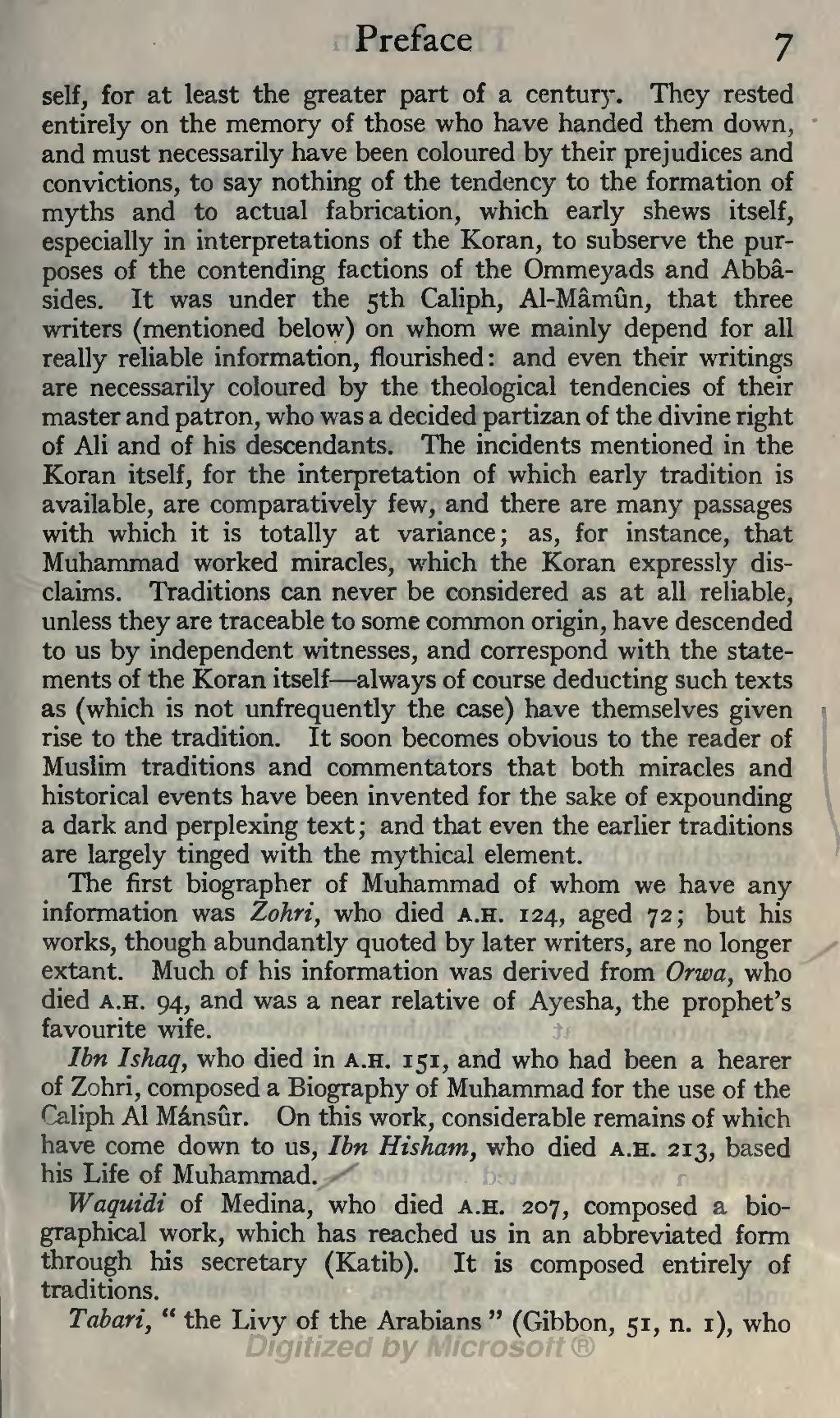self, for at least the greater part of a century. They rested entirely on the memory of those who have handed them down, and must necessarily have been coloured by their prejudices and convictions, to say nothing of the tendency to the formation of myths and to actual fabrication, which early shews itself, especially in interpretations of the Koran, to subserve the purposes of the contending factions of the Ommeyads and Abbasides. It was under the 5th Caliph, Al-Mâmûn, that three writers (mentioned below) on whom we mainly depend for all really reliable information, flourished: and even their writings are necessarily coloured by the theological tendencies of their master and patron, who was a decided partizan of the divine right of Ali and of his descendants. The incidents mentioned in the Koran itself, for the interpretation of which early tradition is available, are comparatively few, and there are many passages with which it is totally at variance; as, for instance, that Muhammad worked miracles, which the Koran expressly disclaims. Traditions can never be considered as at all reliable, unless they are traceable to some common origin, have descended to us by independent witnesses, and correspond with the statements of the Koran itself—always of course deducting such texts as (which is not unfrequently the case) have themselves given rise to the tradition. It soon becomes obvious to the reader of Muslim traditions and commentators that both miracles and historical events have been invented for the sake of expounding a dark and perplexing text; and that even the earlier traditions are largely tinged with the mythical element.
The first biographer of Muhammad of whom we have any information was Zohri, who died a.h. 124, aged 72; but his works, though abundantly quoted by later writers, are no longer extant. Much of his information was derived from Orwa, who died a.h. 94, and was a near relative of Ayesha, the prophet's favourite wife.
Ibn Ishaq, who died in a.h. 151, and who had been a hearer of Zohri, composed a Biography of Muhammad for the use of the Caliph Al Mánsûr. On this work, considerable remains of which have come down to us, Ibn Hisham, who died a.h. 213, based his Life of Muhammad.
Waquidi of Medina, who died a.h. 207, composed a biographical work, which has reached us in an abbreviated form through his secretary (Katib). It is composed entirely of traditions.
Tabari, “the Livy of the Arabians” (Gibbon, 51, n. i), who
